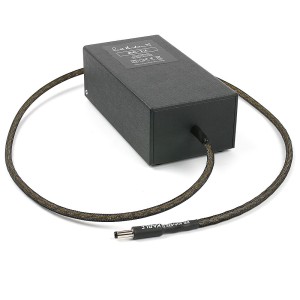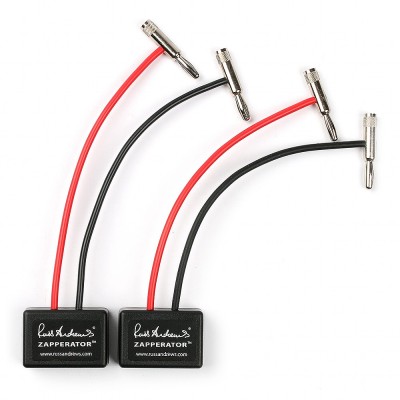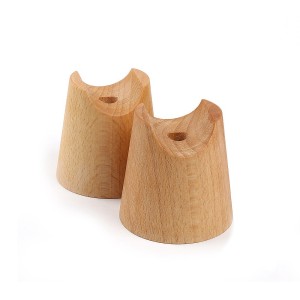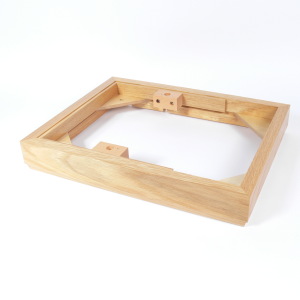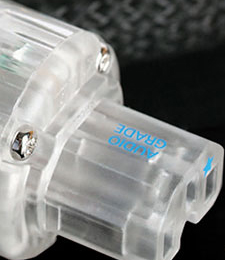Mains and Grounding: The Ear review
Tuesday, 8th October 2024
Jason Kennedy, takes a look at a suite of mains and grounding products for The-Ear.net and comes away impressed: “when it comes to keeping the AC clean”, he says, “the chaps from Russ Andrews have got the power”.
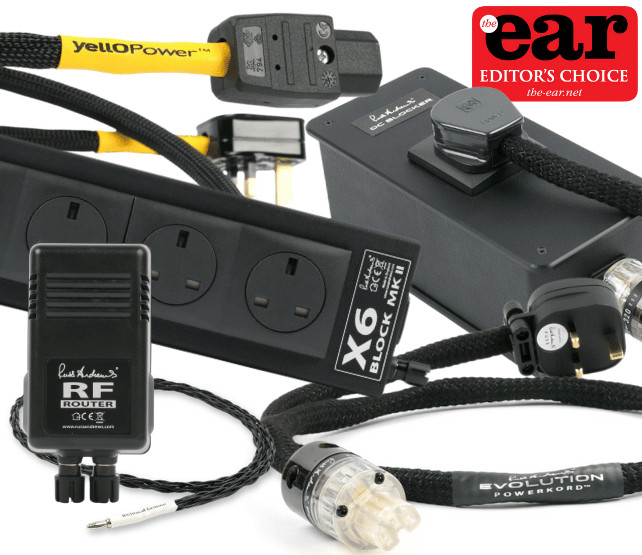
Jason Kennedy has a long history of reviewing Hi-Fi and has gained a lot of respect within the industry over those years. He is probably best known to the public for his time as editor of Hi-Fi Choice magazine but nowadays he can be found heading up the team at the-ear.net online magazine.
He starts the review by giving an overview of the problems associated with both mains noise and grounding and notes that the products under review come from the “more affordable end of the spectrum” making them particularly good value for money, given the effects he observes.
As someone who is aware of Russ’s long-standing research and reputation in this field, Jason was keen to try a number of items from our range, to be able to give a broader assessment of the RA approach to these issues, and how the products work together.
So, on review here we have:
- the X6 Block MKII mains extension
- yellO Power mains cables feeding individual components
- Evolution-300 PowerKord supplying the X6
- the plug-in version of our RF Router, with Technical Ground Weave cables as the Grounding System
- our new DC Blocker to deal with any DC on the mains.
A more challenging test
Rather than assessing the performance of the Russ Andrews products in comparison to the sort of standard cables usually supplied with new kit, Jason was interested to find out how they would fare against alternative, upgraded items.
This is an interesting move as it answers not only the question of whether they are a worthwhile ‘first step’ upgrade but also whether they offer a clear step up if you already own that level of cable.
It’s also a particularly challenging test for the yellO cables as they from the beginning of the Russ Andrews range themselves.
yellOs first, then X6/Evolution-300
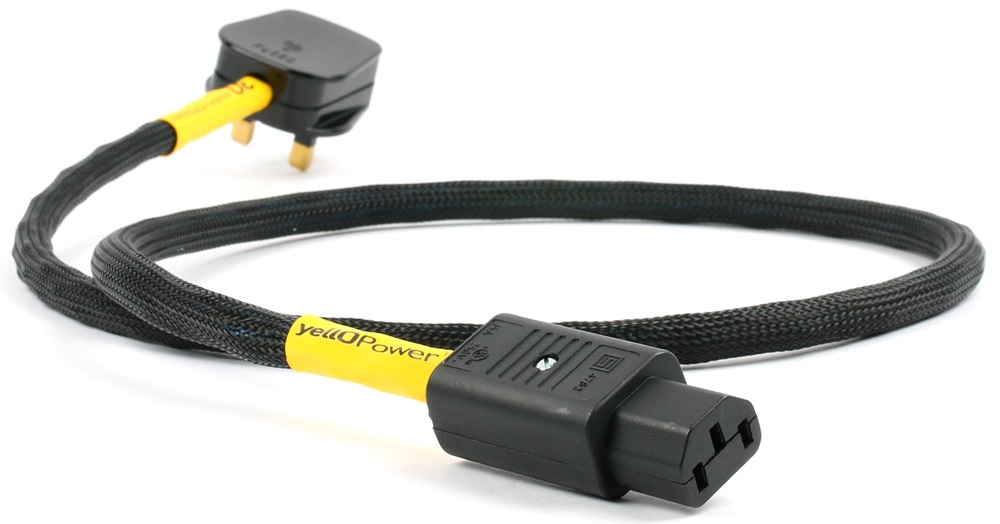
Using the yellO cables to initially feed his streamer, DAC, pre and power amps, “resulted in increased detail levels, better high frequency resolution, quieter backgrounds and a crisper delivery that brought in air and tension from the recording”.
In addition, he notes that that manner in which the yellOs brought extra clarity to the recordings brought “greater expression from voice and piano” and added definition to the lower frequencies too, giving the sound “more solidity”. Quite an achievement for 'entry-level' cables!
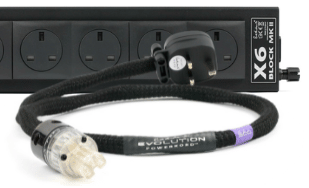 Adding the X6 fed by the Evolution-300 brought forward more of the same with “a clear increase in crispness” and reduced noise, which revealed more detail. “The polish on the recording was more obvious”, he adds, “and instruments and voices were better separated” revealing more subtlety in the recordings.
Adding the X6 fed by the Evolution-300 brought forward more of the same with “a clear increase in crispness” and reduced noise, which revealed more detail. “The polish on the recording was more obvious”, he adds, “and instruments and voices were better separated” revealing more subtlety in the recordings.Grounding
Moving onto the grounding side of the equation, the addition of the RF Router and Technical Ground Weave added a “substantial leap in sound quality”, with a more three-dimensional presentation and a greater sense of the individual voices’ and instruments’ presence in the room.
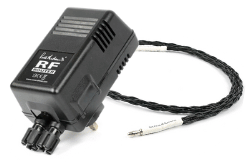
Notwithstanding the foundations which the mains upgrades had already wrought, he was very impressed with the extent to which the grounding added to his enjoyment. This should be considered as far more than “just the icing on the cake”, he writes, “it was more like magic and proves just how critical grounding is to achieving the potential of a good system... it really puts the musicians in the room”.
yellO again…
Having been impressed by the Grounding System, Jason then takes a step back to investigate further the effects of adding the yellO cables, first to his network switch and then to his server.
Again, they did not fail to impress with extra definition and presence to the performances. “In fact”, he says, “it gets pretty damn intense with some high density material from Erland Apneseth, [with] sounds apparently coming from the door two metres to the left of one channel”!
Russ has always argued that improvements in musical timing are one of the key attributes which our mains upgrades bring to the music: possibly the key attribute because it’s accurate timing which really lures you right into the performance. Interestingly, in the review, Jason makes a similar point in relation to the way in which the addition of the yellOs allowed him to distinguish subtle timing differences between different digital versions of the same track: “a sure sign”, he argues, “that the system is revealing the details that really matter”.
The last step: DC Blocker - curing the problem without the side-effects
The final item to be tested was our new DC Blocker. Jason rightly points out that DC on the mains is even more prevalent nowadays with the presence of devices such as mobile phone chargers and Wi-Fi routers being added to existing sources of this noise, like fridges, TVs and washing machines.
He warns that the problem with DC blockers in general is that, whilst they cut down the negative effects of DC - especially the buzzing from the often quite large toroidal transformers in many audio components - being necessarily in-line devices, they also have the negative effect of raising impedance and making it harder for components to efficiently draw power.
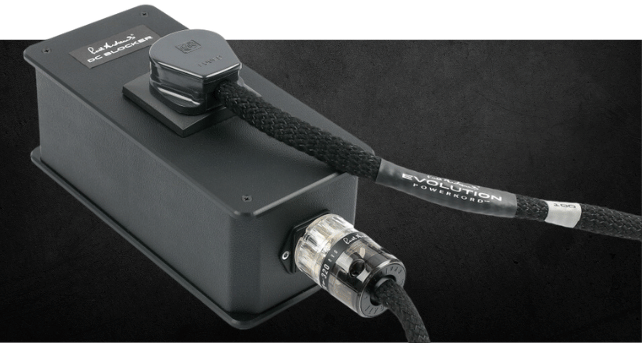
The most typical effect of this raising in impedance is to reduce dynamics and sap the life out of the music. All our mains filters are parallel rather than in-line designs for this very reason, filtering general noise off the mains without hindering current flow.
It’s also the reason why we have resisted introducing a DC Blocker until we knew we’d got it right.
Following a conversation with Peter, our head of product development, Jason inadvertently became part of our final testing last year when he requested a pre-production version of the DC Blocker to deal with buzzing from his Moor Amps power amplifier. He noted that “previous DC blockers had also stopped the noise but had squashed the amp’s ability to deliver bursts of power when required”, which is exactly the issue we were attempting to solve!
He was very pleased with the results and reported that the DC Blocker “worked extremely well” with the buzzing cured and, more importantly, “the amplifier retained its dynamics”.
Given he had tried this pre-production model - albeit, internally very close to the final version we released - he was keen to try the finished component when we spoke about the overall mains/grounding review.
Interestingly, the issue that had originally been causing his amps to buzz had now subsided. However, he decided to try the DC blocker anyway regardless of the existence of any specific problems, just to see if there was any benefit. “There was”, he writes, “and quite an obvious one too:
essentially it allowed the amp to produce cleaner highs which resulted in a more open and larger soundstage. This was blindingly obvious with orchestral music where massed strings and horns became less aggressive and really opened up the image”.
This is interesting, because it highlights that DC can be present, and affecting the sound, even when there is no obvious mechanical noise from the transformer. Where there was an issue, though, was on the upgraded power supply to his Lumin U2 streamer which was clearly buzzing. Again, the DC Blocker solved the problem, but with a different effect than with the amp: “it made the sound more engaging by bringing everything into focus: it caused me to close my eyes and become thoroughly involved”.
Concluding remarks
This is one of the most comprehensive reviews we’ve had in a while, covering a number of items in one go. From our point of view, it’s useful because we find that the effects of our products are clearly cumulative, so it's beneficial for a reviewer, or anyone else for that matter, to hear the results of combining different, but complementary, solutions.
Summing up the effects of these on his own system, Jason concludes:
“This collection of mains devices made a significant impact on the sound quality of my system and prove that any system will be limited that relies on standard power supply systems.”
For those on a budget, or dipping their toes into the water for the first time, you will be interested to read that, from his own experience, even our entry-level yellO Power cables were clearly a worthwhile step, whilst for those wanting to move further up the range, there’s reassurance that the next step brings even more benefits: “things really took off when the X6 Block and RF Router were combined with them”.
The DC Blocker was another revelation, showing its benefit even where the problem is not so evident: “[it] will be a godsend to anyone who has a buzzing power supply in their system and can even improve products where the DC effect is less obvious”.
Overall, he sums up by stating that:
“these Russ Andrews components offer remarkably good results and prove that when it comes to keeping the AC clean the chaps from Russ Andrews have got the power”.

Media: the-ear.net online magazine
Publication: October 2024
Verdict: Editor's Choice
Click here for yellO
Click here for Evolution-300 PowerKord
Click here for X6 Block MKII
Click here for Plug-in RF Router
Click here for DC Blocker
Written By Simon Dalton












